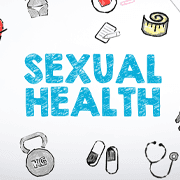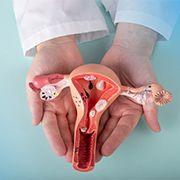Everything You Need to Know About High Blood pressure
In This Article
Everything You Need to Know About High Blood pressure
Parvathy
Updated on January 29, 2025
Medically verified by Dr. Arya
Fact checked by Sreemoyee

Wellness
10 minutes
Understanding High Blood pressure
High blood pressure (hypertension) has no symptoms and can be dangerous if not treated. Hypertension puts you at risk for stroke, heart attack and other problems. Nearly half of adults who have hypertension don’t realise it. So, checkups are crucial. The five blood pressure ranges recognized by the American Heart Association are:
-
Normal
-
Elevated
-
Hypertension stage 1
-
Hypertension stage 2
-
Hypertensive crisis
The following blood pressure chart is devised by American Heart Association (AHA) and American College of Cardiology (ACC) :
| Blood Pressure Category | Systolic | and/or | Diastolic |
|---|---|---|---|
| Normal | Below 120 | and | Below 80 |
| Elevated | 120-129 | and | Below 80 |
| Hypertension Stage 1 | 130-139 | or | 80-89 |
| Hypertension Stage 2 | 140+ | or | 90+ |
| Hypertensive Crisis | 180+ | and/or | 120+ |
Classification of blood pressure
Doctors classify high blood pressure two ways: primary and secondary. Primary high blood pressure, also called essential high blood pressure, doesn't have one specific cause. It develops over time.
Secondary high blood pressure is caused by an underlying condition or something you've consumed. Things that can cause secondary hypertension include: BOX
-
Adrenal gland tumours
-
Blood vessel and heart problems that you're born with
-
Cold medicine, pain relievers, birth control pills, and some other prescription drugs
-
Illegal drugs such as cocaine and amphetamines
-
Kidney disease
-
Sleep apnea
-
Thyroid problems
 10mint
10mintSexual Health Matters: How To Maintain Your Sexual Health ?
 10mint
10mintYour Guide to Sexual Health Screening and Preventive Measures
 10 mints
10 mintsSTDs in Women: Comprehensive Guide on Symptoms and Treatments
Get a Callback Now
Signs and Symptoms
Most of the people with high blood pressure show no signs, even when blood pressure measurements accelerate to significantly high ranges.High blood pressure can continue for many years without any obvious signs.
People with very high blood pressure (usually 180/120 or higher) can experience symptoms including:
-
severe headaches
-
chest pain
-
dizziness
-
difficulty breathing
-
nausea
-
vomiting
-
blurred vision or other vision changes
-
anxiety
-
confusion
-
buzzing in the ears
-
nosebleeds
-
abnormal heart rhythm
Risk Factors
High blood pressure encompasses several risk elements, such as:
- Age
As age goes up, the probability of excessive blood pressure amplifies. Before the age of 64, males are more prone to high blood pressure while females have a higher tendency to develop high blood pressure after attaining the age 65.
- Ethnicity
High blood pressure is commonly seen amongst people of African descent to a great extent. Individuals of African lineage exhibit high blood pressure at an earlier age in comparison to those of Caucasian ethnicity.
- Family background
If there are instances of high blood pressure in your family,the chances of developing excessive blood pressure is high.
- Excessive weight
Carrying extra weights beyond the capacity of an individual leads to amendments in blood vessels, kidneys, and other bodily segments, frequently resulting in heightened blood pressure. Being overweight or obese can also elevate the chances of coronary heart sickness and related factors like heightened levels of cholesterol.
- Physical inactivity
Failing to get engaged in any exercise can lead to weight gain, which in turn amplifies the chance of forming exalted blood pressure. Inactive individuals also typically exhibit elevated heart rates.
- Smoking
Smoking is responsible for swiftly elevating blood pressure. Smoking damages blood vessel linings and quickens the progression of blood vessel hardening. In case you smoke, seek advice from your healthcare provider for help in quitting.
- Excessive Alcohol Consumption
Consumption of too much alcohol has been related to heightened blood pressure, mainly among males.
- Stress
Accelerated stress ranges can result in a fleeting elevation in blood pressure. Distress-related behaviours like overeating, tobacco use, or high alcohol consumption can greatly exacerbate blood pressure values.
- Excessive intake of sodium
Using salt in excessive amounts can result in the increase of blood pressure.
- Diminished potassium levels
Potassium aids in preserving salt equilibrium inside the body's cells. Keeping a proper potassium stability is critical for suitable coronary heart fitness. Low potassium ranges may also come from inadequate nutritional potassium consumption or specific health problems, which includes dehydration.
Managing High Blood Pressure
By incorporating a few healthy lifestyle changes, one can manage our blood pressure from exceeding normal ranges to a great extent . Here are certain tips that can be followed to prevent high blood pressure:
-
Maintaining a well balanced diet is essential for a healthy heart.Incorporating fruits and vegetables like bananas, oranges, spinach in your diet to help to prevent the chances of high blood pressure.
-
Try to moderate your alcohol intake as it can contribute to elevated blood pressure .
-
It is advisable to switch on to whole grains rather than refined grains as whole grains are more beneficial for better cardiac health.
-
Abstain from the consumption of red meats and full-fat dairy products which are responsible for raising blood pressure.
-
Take part in moderate-intensity aerobic exercise (like brisk walking, cycling, or swimming) at least for 150 min per week.
-
Try to include muscle-strengthening activities at least two days a week in your workout routine.
-
Excess abdominal fat is a risk factor for hypertension. Ensure that your waist circumference is not too much.
-
Taking part in a few relaxation techniques like Yoga ,meditation and brisk walk that can help relieve stress help a person control blood pressure.
High blood pressure – also called hypertension – can lead to serious complications, including stroke, heart disease, kidney disease and so on.
Most people with high blood pressure don't have any symptoms until it's severe.
Instead of relying on symptoms to alert you, have your blood pressure checked regularly.
Source Links
Mayo Clinic
Medical News Today
American Heart Association

